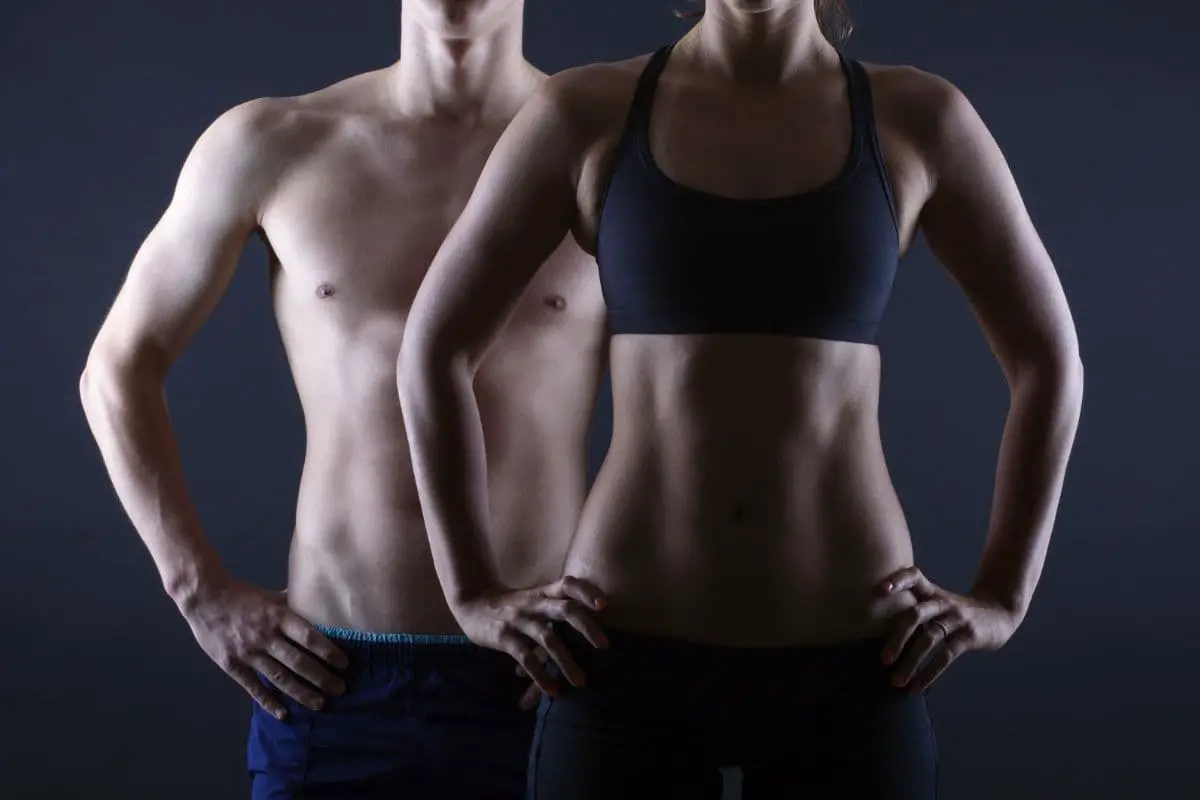Fasting, whether it be intermittent such as the 16/8, 5:20, or a 24-hour fast here and there, has become increasingly popular when trying to lose weight. Now, the question is, will it affect your lean muscle mass in the process?
Fasting will not kill your muscle gains. There has been no definitive evidence that fasting decreases muscle mass. In most cases, people who fast lose fat without losing any lean muscle. Some studies even found that fasting may slightly increase muscle mass.
The data surrounding fasting is constantly evolving. Let’s have a look at what is known about Fasting and why it will not affect your muscle gains.

What Is Intermittent Fasting?
The use of Intermittent Fasting to lose weight has become increasingly popular over the years. You may have heard the term, but what exactly is Intermittent Fasting, and what does it do?
Intermittent Fasting involves cycles of fasting and eating. Many studies claim this way of eating can help with weight loss, metabolism, and overall longevity. Intermittent Fasting focuses not on what foods you eat but more on when you eat them.
If you want to try intermittent Fasting, you will need to choose your Eating Window and Fasting Time. The most common choice is 16/8, where you eat for 8 hours per day and fast for the remaining 16 hours. Typically, water, coffee, and other calorie-free drinks are allowed during the fasting period. You are not permitted to eat any solid foods during your chosen fasting time.
Intermittent Fasting and Muscle Mass
Most of the information about Intermittent Fasting revolves around weight loss, but there are some studies focused on muscle mass and how it is affected by fasting. This research states that if fasting is combined with regular training, specifically resistance training, it may result in slight muscle gains and muscle maintenance.
If you are trying to bulk up significantly while fasting, it may be a little tricky. You need to increase your calorie intake and consume more protein to gain muscle. Fasting may interfere with the number of calories you can consume, as the window you have to eat food is smaller than usual.
For bodybuilding, the timing of your meals is essential to maximize muscle gain. If your goal is only to gain muscle, then Intermittent Fasting may not be the best choice for you.
Intermittent Fasting and Exercise
Exercising while fasting is a great way to stay healthy and gain muscle while also shedding some unwanted pounds. Avoid exceeding 60 minutes of exercise while fasting, as your energy levels may be lowered.
Research suggests that Intermittent Fasting causes our bodies to use up glycogen stores. It is at this point that our bodies begin to burn fat. If you exercise during this time, then you may speed up the process and lose more weight.

According to Dr. Niket Sonpal, you should schedule your workouts so that they take place during your Eating Window; this will ensure your nutrition and energy levels are high. Consuming protein during your Eating Window is important to help facilitate muscle regeneration while exercising.
Anyone with type 2 diabetes or metabolic syndrome should exercise immediately after eating before the food is absorbed into the body.
A 2018 study even found that exercising while Fasting may have anti-aging benefits and increase your metabolism.
Choosing the Right Types of Exercise While Fasting
Certain exercises are recommended over others when fasting. Let’s have a look at them in detail.
Walking
Walking is an excellent form of exercise, whether fasting or not. Not only is it free and simple, but it is also low impact, making it more tolerable on our bodies than high-impact cardio, for example.
Walking while Fasting has several benefits, such as fat burning, decreased stress, and reduced inflammation. It has also been known to improve sleep.
Moderate Cardio
You can also do some cardio while in your Eating Window. Cardio, as an aerobic exercise, is known to be high intensity; therefore, it would be much easier to do after eating.
If you want to do cardio and gain or maintain muscle mass while fasting, running combined with some resistance training is a great option. Resistance training increases the muscle protein balance, therefore, promoting muscle gain.
Fasted Cardio
When you do cardio during Fasting, it is called Fasted Cardio. It is done when you are fasting so that your body is not digesting any food at the time of exercising. Your stomach needs to be empty. Therefore it is recommended to work out first thing in the morning.
Moderate fasted cardio is a great way to aid weight loss. This study found that fasted cardio led to a higher metabolic performance.
Weight Lifting
The information on weightlifting while Intermittent Fasting is varied. Weight lifting helps to build muscle and maintain muscle mass, but it also requires a lot of energy. If you plan on lifting weights while fasting, doing so while in your Eating Window is recommended.
How to Safely Exercise While Fasting
If you want to work out while Fasting, it is crucial to do it safely. Let’s have a look at how you can do that.
Stay Hydrated
It is surprisingly easy to become dehydrated while fasting, more so if you exercise while fasting. When at the gym or even if working out at home, always keep a bottle of water on hand to keep your body hydrated.

Increase Your Electrolyte Intake
If you are fasting for more than 8 hours at a time, you should be taking electrolytes. Electrolytes are electrically charged ions that aid bodily functions.
Coconut water is an excellent source of electrolytes while also being low in sugar. Stay away from sugary sports drinks when trying to increase your electrolyte intake.
Conclusion
If you are Intermittent Fasting, for whatever reason, don’t fret, it will not cause a decrease in your muscle gains. Intermittent Fasting has been shown to maintain muscle mass while reducing fat.
If you are experiencing a significant loss of muscle mass while fasting, it is an indication that you should increase your protein intake. If it continues, you should consult your GP.

